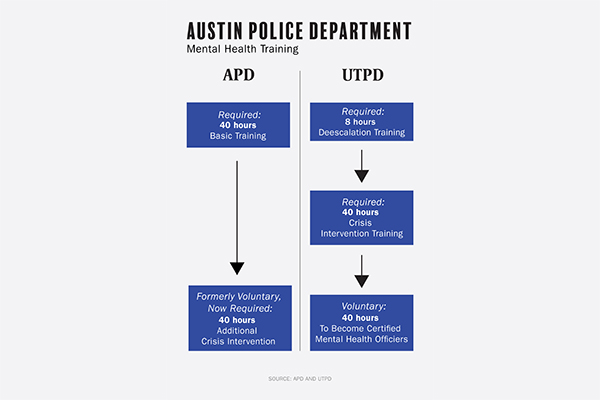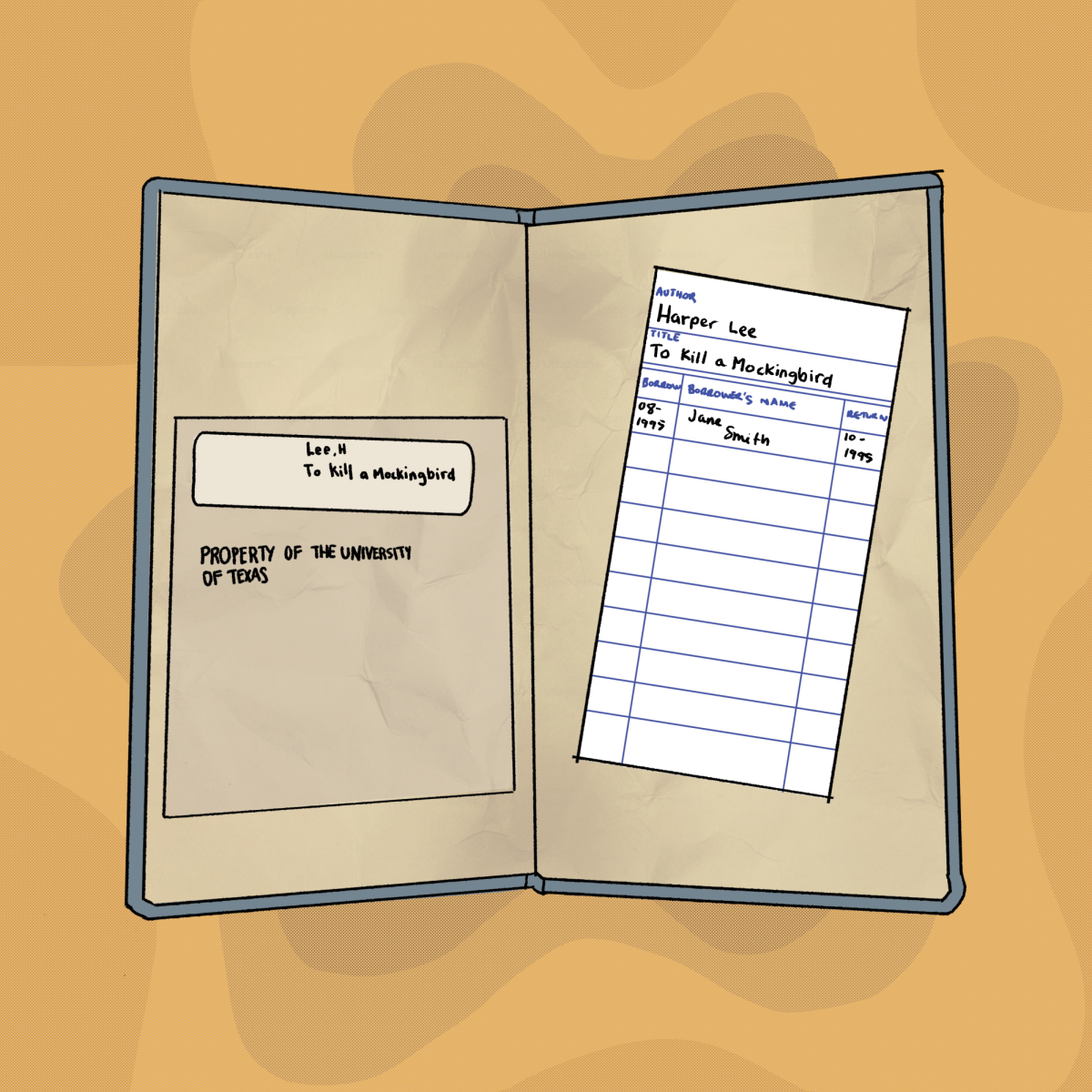The Austin Police Department announced Aug. 27 that the department will expand their mental health training for all police officers to include 40 additional hours of crisis
intervention training.
All police officers in the state of Texas are required to receive 40 hours of basic mental health training. The additional 40 training hours were previously optional for APD officers, but the training will now make all APD officers certified mental health officers starting in January.
"We've been talking about it for a couple of years," APD Assistant Chief Justin Newsom said. "We just haven't had time to get around to writing this plan to try and train everybody as a mental health officer."
Newsom said a recent audit by Meadows Mental Health Policy Institute, a nonprofit that conducts mental health research in Texas, found that Austin police could improve their responses to mental health calls. He said the study partly prompted APD to add the new requirements.
"In (this) class, there is more instruction on different types of mental illnesses (to) try to educate the officers as much as they can about the different characteristics of certain diagnoses," Newsom said. "So when (officers) do show up and they're aware of a person's mental health state, they may be able to use some of those tools to (de-escalate) a situation."
Newsom said sergeants will register their officers for trainings at different times to ensure there are not personnel shortages during shifts. When training is complete, Newsom said officers will be better equipped to prevent violence and de-escalate mental health calls.
UT Police Department detective David Chambers said UTPD officers, in comparison, are required to take eight hours of de-escalation training and 40 hours of crisis intervention training. He said while it is not required by the state of Texas, UTPD strives to have all officers take an additional 40 hours to be certified mental health officers.
"Officers usually receive MHO training within their first year or two after starting with our department," Chambers said. "Then, we have refresher classes every so often to keep officers fresh and up to date on
the information."
Chambers said mental health crises can include a reaction to a bad grade, a break up with a significant other or a mental illness. He said UTPD aims to have all officers become mental health officers since many students start to experience signs and symptoms of mental illness during college.
Pharmacy graduate student Caitlin Vogt is the president of the Student Pharmacist Recovery Network, which spreads awareness about mental health and substance use disorders. Vogt said she is glad to see APD expanding their mental health program.
"We've come to a point in our society where police officers are expected to be more than just police officers, and they need to understand how to respond to these crises," Vogt said. "Until we can find people in the healthcare community who can respond with officers, I think additional training would be good to protect police officers and citizens."















